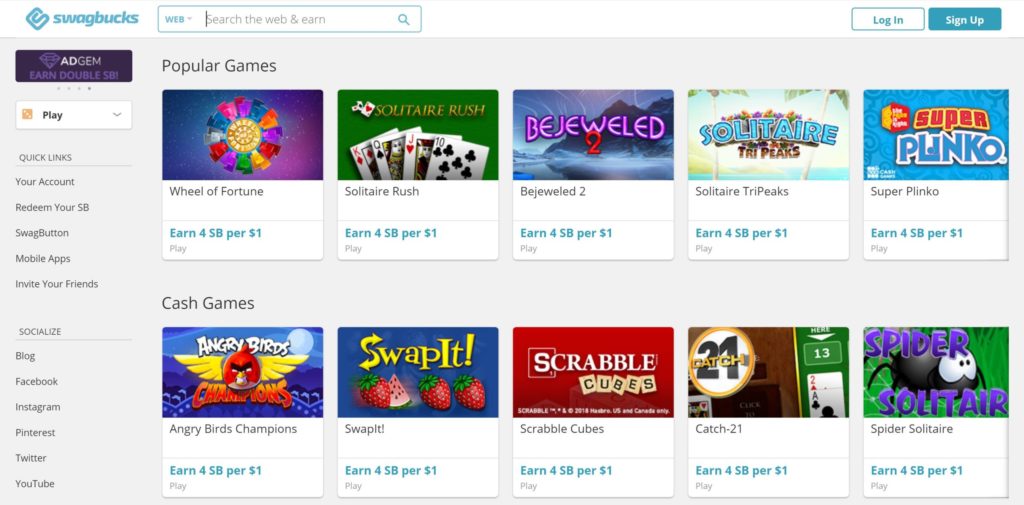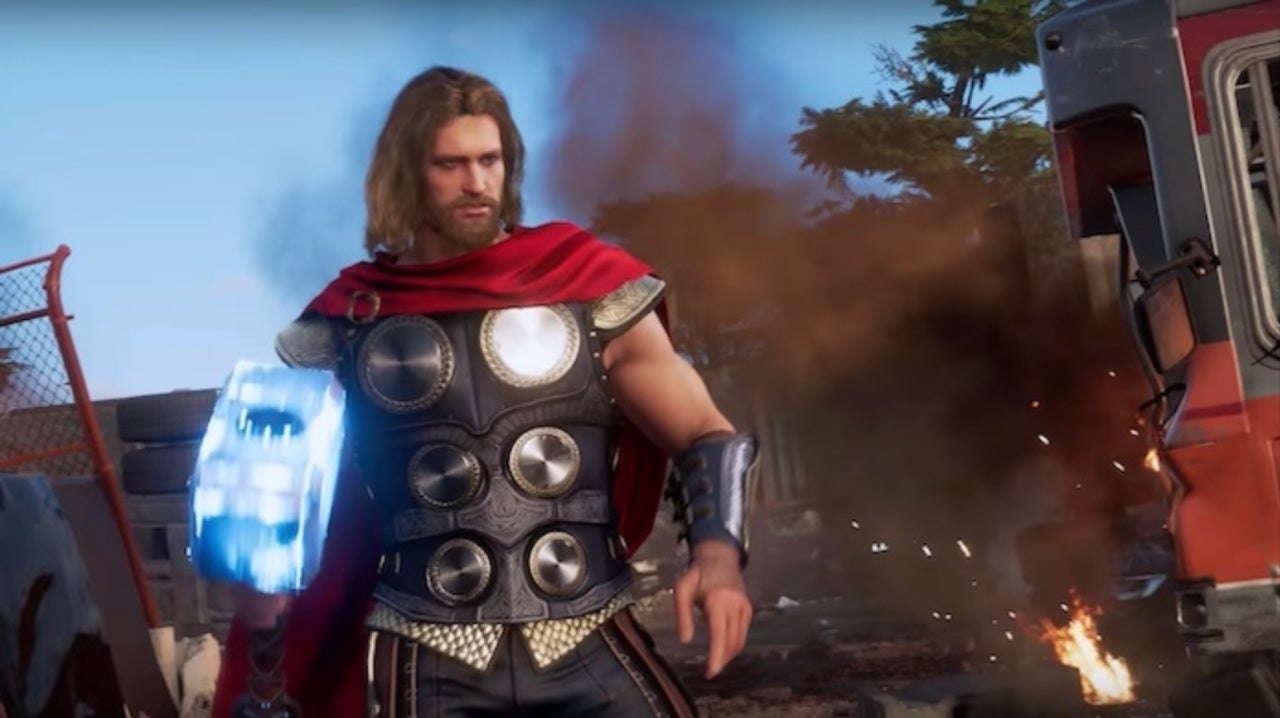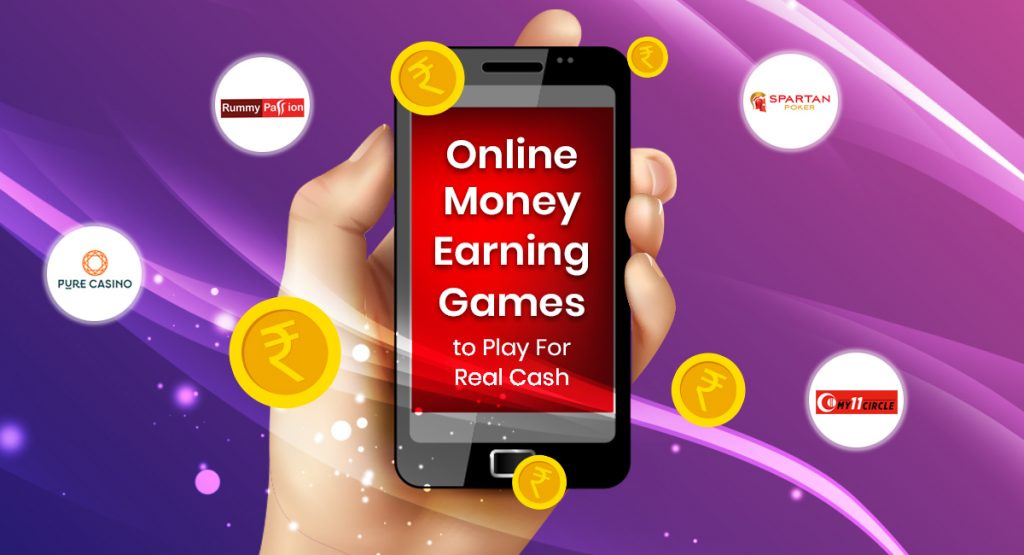Money Making Games 2020
The Leisure Economy is the embodiment of the hope that someday we could all get paid to play games. It has been a common topic at our GamesBeat Summit events, and came up again at our GamesBeat Summit 2020 in a fireside chat with John Linden, the CEO of Mythical Games.
Hopefully, this list of money making ideas will assist you on your journey to making some fast cash! There is over $300 worth of signup bonuses just through the combination of app signups and banking/credit card signups, and you could earn even more fast money with bonuses from Lyft/Uber or starting a side hustle! Long Game is an app that rewards you for making the right financial decisions – it also rewards you for playing fun and addicting mini-games right in the app. By linking up your savings account to the app, you get in-game rewards whenever you add money to your savings account.
As so many people struggle with joblessness now, games are creating a new economy of people who can make a living by getting paid to play games. These people include esports athletes, cosplayers, influencers, YouTubers, livestreamers, modders, and many other people getting paid to play. Many of these careers didn’t exist a decade ago.
The talk on the Leisure Economy at our GamesBeat Summit 2020 event was moderated by Harold Goldberg, founder of the New York Game Critics Circle. He writes about games for the Washington Post and New York magazine. And he is also the author of All Your Base Are Belong to Us: How 50 years of video games conquered pop culture. Goldberg also recently started a podcast series with Reggie Fils-Aime, former president of Nintendo of America, about how games can positively impact young people facing poverty and homelessness.
The big question is whether game companies can create a long tail for these people who are inventing careers that didn’t exist five or ten years ago so that more than just celebrities can cash in. We previously talked about this at our 2018 event.

Linden is a veteran of Seismic Games (maker of Marvel Strike Force) and Activision Blizzard (Call of Duty, Skylanders). He started Mythical Games in 2018 with chief creative officer Jamie Jackson and vice president Rudy Koch. The company announced it raised $19 million in November. The idea is to enable players to make money through digital ownership and player-owned economies.
“It’s the concept that we can eventually make money in games,” Linden said. “A player could end up being in these virtual worlds and making a living in these virtual worlds. There have been a lot of examples of this in the last 10 years but we still haven’t quite nailed it to the mass adoption point.”

To get funding for his own company, Linden assembled a team that had experience as studio heads. But he also promoted the idea of player-owned economies, where you can wind up with a bigger total addressable market. If the game industry is $150 billion today, you could expand the size of that industry by expanding the number of stakeholders involved, Linden said.
The pandemic economy needs this
Above: John Linden of Mythical Games talks about the Leisure Economy with Harold Goldberg (right) of the New York Critics Game Circle.


Linden believes that gaming is growing during the pandemic, and that usage will stay high for a while. That enthusiasm for gaming will be a catalyst for what Linden is talking about.
“We also look at it in the context of esports teams, influencers, brands themselves, in addition to players,” Linden said. “We think there are two new player archetypes that come out of this economic change. One is the trader or speculator. We have seen some of that. People buy assets that could be rare and hold on to them until they are worth more in the future. The other is the game entrepreneur, the one who figures out how they can be really good at something and there is a financial aspect to that.”
If you look at streaming, what’s interesting is that those people are making billions of dollars this year.
“And they’re not in the game itself,” he said. “That’s a separate industry that sits on top of the gaming industry.”
Goldberg asked for examples, like people wearing masks in Animal Crossing: New Horizons or other signs of do-it-yourself (DIY) income.
Linden pointed to the 27.7 million people who watched the Travis Scott concert inside Fortnite, the big battle royale game with more than 350 million users.
“You brought a major artist into a major game and you see the effect of that,” Linden said. “And now most of his albums are in the top 100 again.”
Linden also said he liked the 100 Thieves esports team, which gave out their virtual items for free in Animal Crossing. As a result, the team has gotten a lot of exposure for themselves. There have also been 100,000 transactions on the gray market of eBay where players for Animal Crossing goods.
Mythical Games is working on an open-source solution dubbed Goods (short for digital goods) to create a commercially endorsed benchmark for creating, managing, and distributing in-game assets using blockchain, the decentralized, transparent, and secure ledger technology. That technology makes it possible to track transactions and make it easy to audit things. Mythical Games is making a title dubbed Blankos, a sandbox world where players can create their own toys in the game.
Players can sell their creations to other players, and those players can take the creations and use them in new items. If the new item gets sold again, the original creator can get paid a piece of the overall payment. You can buy characters and mix their parts together to create new characters. This, in turn, eventually fuels a loyalty for the game, just like the frequent flyer programs built loyalty for airlines.

“People can make up their own rules and bring out new game patterns,” Linden said. “The creator is in for the ride. They have the ability to make money long term off of these assets. We think this is a staple of where games are going to go. We start bringing these stakeholders into the economy.”
GamesBeat
GamesBeat's creed when covering the game industry is 'where passion meets business.' What does this mean? We want to tell you how the news matters to you -- not just as a decision-maker at a game studio, but also as a fan of games. Whether you read our articles, listen to our podcasts, or watch our videos, GamesBeat will help you learn about the industry and enjoy engaging with it.How will you do that? Membership includes access to:- Newsletters, such as DeanBeat
- The wonderful, educational, and fun speakers at our events
- Networking opportunities
- Special members-only interviews, chats, and 'open office' events with GamesBeat staff
- Chatting with community members, GamesBeat staff, and other guests in our Discord
- And maybe even a fun prize or two
- Introductions to like-minded parties